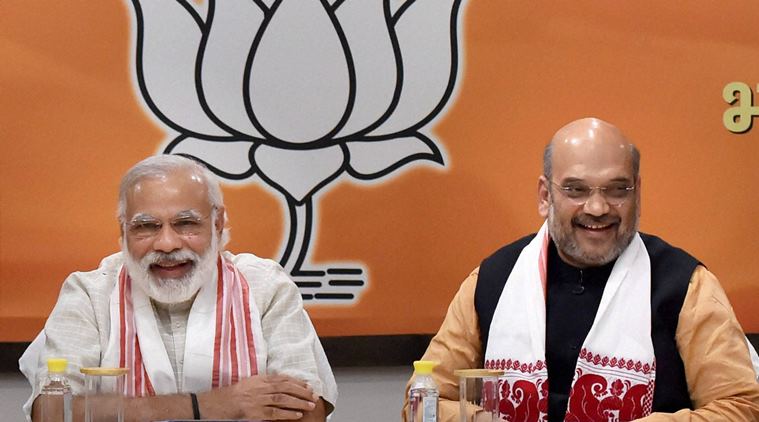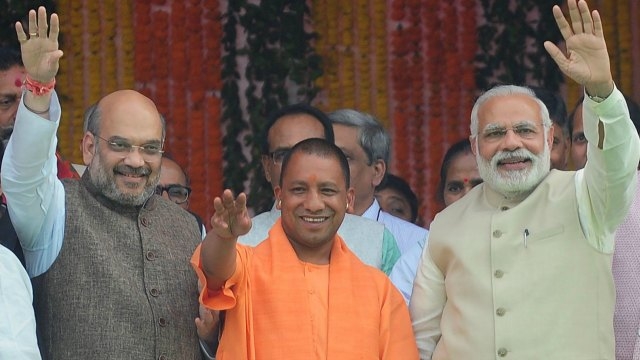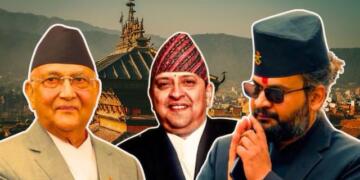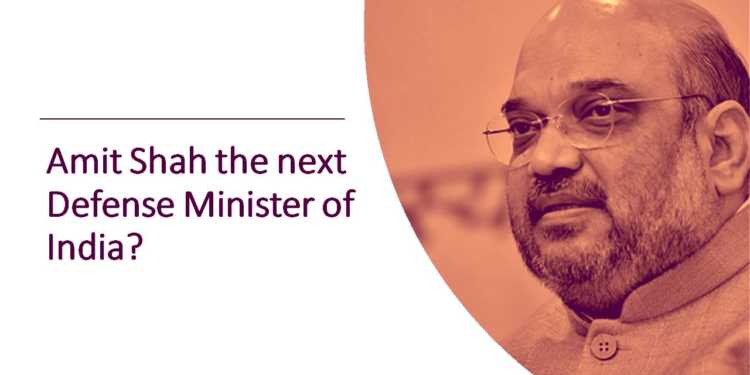Amid all the excitement the night Nitish Kumar dumped the RJD and allied himself with the BJP, the BJP made a low-key announcement. Such an announcement would have sent the media in a tizzy on any other night, but that night, the fact that Mr. Amit Shah would contest the Rajya Sabha elections drowned in the din. Some anchors who chose to take a break from all the action in Patna and focus on Amit Shah’s candidature for a few minutes, speculated that Shah might join the cabinet.
Currently, India does not have a full-time defense minister. With Manohar Parrikar being sent back to his home state, Venkaiah Naidu being made the vice-president of India, and the demise of Anil Dave, the cabinet faces a shortage of manpower. Other factors too indicate that a reshuffle is surely on the cards. NDA’s latest entrant the JD(U) must be given representation, and if the BJP is able to unite AIADMK’s warring factions and bring them into the NDA’s fold, they too would have to be given adequate representation.
It is in this backdrop that many believed Amit Shah would be offered the defense portfolio in the imminent reshuffle. He comes across as someone who would make a capable defense minister, an excellent floor manager and the best trouble-shooter prime minister Modi could ask for.
Unfortunately for prime minister Modi, political compulsions will keep his lieutenant away from the cabinet. With the completion of both the presidential and the vice-presidential elections, prime minister Modi can go forward with the reshuffle the moment we have a united AIADMK. If Amit Shah were to join the cabinet at this juncture, someone with Shah’s stature would be offered only one of the CCS (cabinet committee on security- prime minister, home minister, finance minister, foreign minister, defense minister) portfolios. With less than two years to go for the general elections, it would be impossible for him to settle in his new role and at the same time ensure that the party moves forward from where he left off.
Moreover, the Gujarat assembly elections are around the corner. The Modi-Shah duo have delivered every single election in the state, be it parliamentary or local, for their party in the last one and a half decades.

With Modi having moved on to the national arena, and the leadership in Gujarat having changed hands once already, it is imperative for Shah to dedicate his undiluted attention to the state during the upcoming elections. With both the prime minister and the party president hailing from Gujarat, a win is not enough for the BJP. Anything short of a huge sweep will embarrass the party and will be considered a huge blow. Political acumen aside, Amit Shah has a deep understanding of the political nitty-gritties of every state. Having spent most of his life in Gujarat, it is unlikely that anyone possesses a better understanding of Gujarat politics than him. As defense minister, he will find it hard to focus on Gujarat.
According to many political analysts, the country has never had a politician as astute as Amit Shah. His understanding, his acumen, his organizational skills, his strategic depth, the ability to multi-task, the reluctance of leaving anything to chance, and the stoic unwillingness to accept defeat in any situation, sets the modern-day Chanakya a class apart from his peers. No anti-Congress party in India’s history has exercised so much power in the past. If there is one man who is responsible for carrying out this tectonic shift at the electoral level, it is Amit Shah.
Shah won’t join the cabinet, not until the country has settled smoothly into the new political groove. Apart from Gujarat, Madhya Pradesh and Chhattisgarh, this groove is new to the rest of the country. Many of the state governments formed under Shah’s leadership for the first time are only beginning to entrench themselves. The support for the party in many parts of the country is reaching unprecedented heights, and needs to be sustained. But most importantly, what needs to be sustained is the insatiable hunger for victory and domination. In a sense, this has been the most important factor in the party’s successes after Shah took over three years ago. This is what Shah brings to the table.
In the complex world of Indian politics, one couldn’t have imagined before 2014 that a single party would win 73 of the 80 parliamentary constituencies in Uttar Pradesh. In the last three decades, one could never have imagined a single-party majority in the Lok Sabha. One could never have imagined that a party would win states like Maharashtra, Haryana and Assam for the first time, all in the span of two years. Winning 325 of the 404 assembly seats in Uttar Pradesh was unthinkable.
For a right-wing party to form a government in Jammu and Kashmir, and to substantially increase its vote-share in West Bengal and Kerala, was unheard of. Making inroads in the northeast and in Odisha to such an extent that a party would form governments in those states soon, was unimaginable. If someone told you three years ago that a party would have eleven crore members, you’d think he’s living in a fool’s paradise. For a party to fight hard for every Rajya Sabha seat, even the ones that they weren’t entitled to, and for a non-Congress Party to conduct midnight coups in states like Bihar, Goa and Manipur, was unheard of. And who would have thought that the prime minister, the president and the vice-president of India would belong to the RSS one day?
This is the result of Amit Shah’s prowess. Having Shah in the Rajya Sabha would ensure better floor management and discipline among the MPs. The party would avoid embarrassing situations, like when the Congress managed to get its way on a bill because the treasury benches were empty. But if the party seeks to be the dominant force in Indian politics for the next few decades, it should look elsewhere for the next defense minister.



























